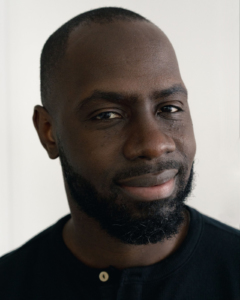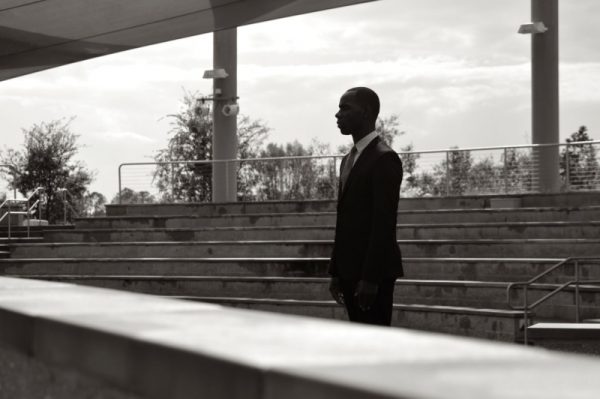Raleigh’s city leaders have a civic duty to create spaces for public dialogue; to encourage and listen to diverse viewpoints; offer honest analysis and synthesis toward recommendations that advocate for the public interest; and act in the public interest, which means advancing city goals that improve the lives of everyone.
When the perspectives of local leaders align with the public interest, I believe that trust will grow in our city. Trust is earned from tangible success, from the results of action rather than talk. As trust grows, healthy community is built, and goodwill is fostered. Unfortunately, trust in our local leadership is dwindling. The community struggles to reconcile their decisions with the greatest needs and the crisis that many of our residents are facing. The decisions are misguided. How can they be rectified?
For example: How do we rectify the City Council’s commitment to unbridled growth when we are seeing downtown small businesses dissolve? How do we rectify the council’s commitment to growth when we are seeing old hotels filled with people who cannot afford their homes or apartments anymore? How do we rectify this commitment to growth when we are seeing a huge disconnect between the community voice and the decisions made by the council? How do they continue to hold on to their current notion of growth without the trust, support, and involvement of community?
These questions reference just a few of the basic concerns about the current trajectory of our city. Unfortunately, there are 5 to 10-year strategic visions for how we will build buildings, but there is no vision for how we will build people.
Healthy people make healthy families; healthy families make healthy communities; and healthy communities make a healthy and prosperous Raleigh. Of all the levels of government, cities are ideally positioned to leverage the expertise and experience of disparate sectors and diverse sets of people. It is this diverse set of community voices that the city has under-appreciated. This public voice is left with only one option and that is to line up, for hours on end, during council meetings to have a few minutes to access those who are supposed to represent them.
I struggle with understanding how Raleigh’s leadership can accurately secure the public interest amidst the mounting distrust from diverse community groups. In meeting after meeting, public testimony after public testimony, email after email, we see evidence of this breach in the public trust. I wonder … what is the public interest that is being represented?
Signs of this breach of public trust are visible in the handling of recent development projects. Currently, for example, there is a development project on the table that is designed to be one of the largest developments in Raleigh’s history, The Downtown South Project.
There have been several opportunities for council to demonstrate an alignment to the larger public interest by attending to the details and the benefits of this project. But these are missed opportunities for them.
· First Opportunity: Although this development is slated to be built in a federally designated Opportunity Zone, no plans were communicated on how the tax breaks associated with these zones will benefit existing residents, who are mostly people of color. This development has the potential to redefine who can afford to live and work in this area, and the existing plans do not include how it will support those residents who are already invested in the Southwest & Southeast Raleigh communities.
· Second Opportunity: in the beautiful renderings and 3D designs of the DS project, almost no attention is given to sharing the benefits of the profit with the community. Several community groups have lobbied for a Community Benefits Agreement that includes affordable housing units. In a city that is steadily pricing out low-income residents, negotiations either never happened or stalled, but in any event the lack of results marks a significant failure.
· Third Opportunity: in the absence of embedded community engagement platforms (like our banned CACs), the lines of communication between council, developer, and residents are fractured. A project this size would benefit from mature, tested, and healthy review and analysis from the Citizen Advisory Councils. Community engagement platforms, like the CACs, could be helping to create meaningful opportunities for participation, create an effective communication pipeline between all stakeholders, and be a platform to capture the accurate interest of the public.
These failures have ignited a revisit to the question of whose best interests are driving decisions. I believe that future growth in Raleigh needs to be designed by, and financed, and delivered in close cooperation with the community, private, and civic sectors.
Participatory democracy welcomes residents as partners, rather than antagonists, in getting things done and facilitating responsible growth. It is at this intersection of civic engagement where our city leaders will find their right alignment with the public interest.
Terrance Ruth, PhD
 Dr. Terrance Ruth has been an advocate for public education, serving as a teacher and principal, and is the parent of a son who attends public schools in Wake County. Dr. Ruth has worked in K-12 schools across Florida and in Wake County. A former Administrator for Wake county Public Schools, he continues to serve as an Education Consultant to numerous nonprofits.
Dr. Terrance Ruth has been an advocate for public education, serving as a teacher and principal, and is the parent of a son who attends public schools in Wake County. Dr. Ruth has worked in K-12 schools across Florida and in Wake County. A former Administrator for Wake county Public Schools, he continues to serve as an Education Consultant to numerous nonprofits.
Dr. Ruth has led social justice organizations at the national, state, and local levels with a reputation for being the “implementation expert.” He served as the NC NAACP Executive Director under Dr. Barber and Dr. Spearman and has served as National Director of Programming for the Repairers of the Breach.
Dr. Ruth is a Lecturer at NCSU and serves as President at Justice Love Foundation.

